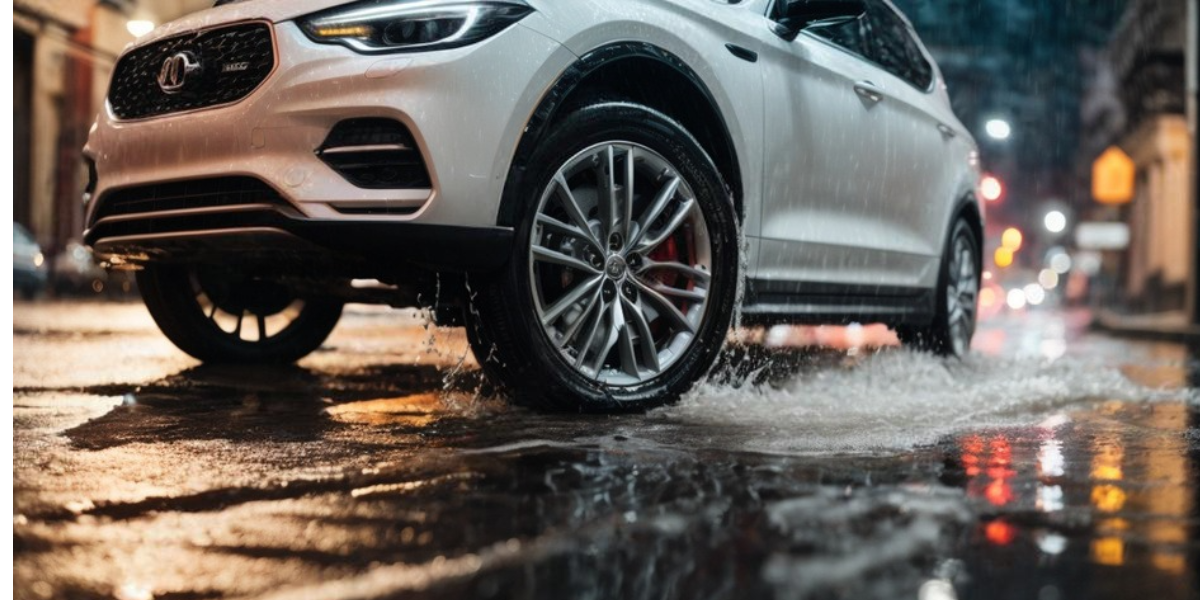Types Of Tyre: Find Out Which Ones Suit Your Driving Style

With so many types of tyres on the market, it may seem intimidating to choose new tyres. Tyres are manufactured for particular kinds of vehicles, which include cars, vans, and 4x4s.
Each has different tread patterns developed to suit certain driving conditions. Knowledge of the type of tyres and how they relate to driving needs and conditions is critical when selecting the right tyres.
1. Winter Tyres
Winter tyres are specifically designed for dealing with such cold weather conditions as snow, ice, and slush. Though it is not compulsorily required in the UK, winter tyres may ensure better safety and performance at temperatures below 7°C. Standard tyres, just like summer tyres, tend to harden up in low temperatures and reduce grip.
The winter tyres, on the other hand, remain flexible and provide greater grip in hazardous winter conditions. If you drive through areas where harsh winters are commonplace, it is a good idea to buy winter Tyres Corby to further enhance your on-road safety.
2. Summer Tyres
Tyres for summer are normally made for higher temperatures. These tyres are designed for optimal performance in dry and wet conditions during the hotter months.
These tyres perform brilliantly on dry roads, with especially great grip, and handle fairly well in rain, therefore making them adequate for the majority of drivers living in temperate climates. Some drivers continue driving on summer tyres throughout the year; however, during the colder months, their performance significantly deteriorates.
Drivers desiring to optimise the performance and safety of their vehicles can substitute summer tyres with winter tyres, achieving far better performance during the winter.
3. All-Season Tyres
All-season or all-weather tyres are a balanced compromise between summer and winter tyres. In their design, they try to be decent on a variety of surfaces: wet and dry pavement, and light snow.
If you live in an area where the weather doesn’t show extreme heat or cold, all-season tyres can be a convenient option. They save you the hassle of changing tyres seasonally while providing a safe and stable drive throughout the year.
4. Part-Worn Tyres
Part-worn tyres are those tyres taken from other vehicles but which still have sufficient tread to be considered usable. They could be from the likes of scrapped vehicles or vehicles in countries with more stringent laws regarding tyres.
The tyres may seem cost-effective, but there is a degree of risk because one can never know their complete history. Invisible damage can compromise safety, and therefore it is important to think very carefully before using them at all.
5. Budget Tyres
Budget tyres are usually the immediate choice of anyone who is looking to save money on tyres. But while they are generally cheaper than either the premium or mid-range tyre, remember in most cases that the price reflects the performance and durability.
Cheaper tyres are not always as economical in the long term because they can wear out quicker, or they might not be able to provide the same grip, fuel efficiency, or safety as higher-end tyres. Hence, this is a balance that has to be drawn between short-term economies and longer-term costs and performance when choosing tyres.
6. Run-Flat Tyres
Run-flat tyres enable you to continue driving for a limited distance even when the tyres get punctured. This removes the immediate need to pull over and change the tyre, which can be helpful if you’re on a busy road or in a rather inconvenient location.
Run-flat tyres offer increased safety in that they allow drivers to drive to a repair shop or a safer area before needing to deal with the puncture. These tyres are fitted as original equipment on most modern vehicles, but they can be much more expensive than regular tyres.
7. Energy-Saving Tyres
The tyres known as energy-saving tyres, or more colloquially as eco tyres are made with the reduction of fuel consumption and CO2 emissions in mind. Because these tyres have lower rolling resistance, your vehicle uses less energy to keep moving.
Energy-saving tyres can save you money on fuel besides reducing your environmental impact. Generally, they are just a little more expensive upfront; their long-term savings on fuel make them a very attractive option for eco-conscious drivers or those simply looking to lower their fuel costs.
8. High-Performance Tyres
High-performance tyres are made to handle well, particularly at higher speeds. The tyres have softer rubber compounds, and their tread patterns are specifically designed for better grip and responsiveness.
They are ideal for drivers who believe in agility, speed, and precision. Such tyres can often be seen on sports vehicles or other performance vehicles. High-performance tyres wear out faster and may not be able to provide good traction in wet or icy conditions.
Conclusion
Knowing the type and how they can meet your needs for driving will help in choosing the right tyres for your vehicle. The weather conditions outside, driving style, and vehicle type will play a part in determining which tyre will best fit your requirements.
Whether based on safety, performance, fuel efficiency, or budget, having a bridgestone tyres Corby can get you a better value.










